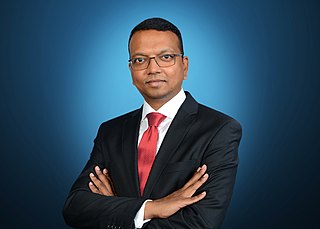
Albania, officially the Republic of Albania, is a country in Southeast Europe. It is in the Balkans, on the Adriatic and Ionian Seas within the Mediterranean Sea, and shares land borders with Montenegro to the northwest, Kosovo to the northeast, North Macedonia to the east and Greece to the south. With an area of 28,748 km2 (11,100 sq mi), it has a varied range of climatic, geological, hydrological and morphological conditions. Albania's landscapes range from rugged snow-capped mountains in the Albanian Alps and the Korab, Skanderbeg, Pindus and Ceraunian Mountains, to fertile lowland plains extending from the Adriatic and Ionian seacoasts. Tirana is the capital and largest city in the country, followed by Durrës, Vlorë, and Shkodër.

The Balkans, corresponding partially with the Balkan Peninsula, is a geographical area in southeastern Europe with various geographical and historical definitions. The region takes its name from the Balkan Mountains that stretch throughout the whole of Bulgaria. The Balkan Peninsula is bordered by the Adriatic Sea in the northwest, the Ionian Sea in the southwest, the Aegean Sea in the south, the Turkish straits in the east, and the Black Sea in the northeast. The northern border of the peninsula is variously defined. The highest point of the Balkans is Musala, 2,925 metres (9,596 ft), in the Rila mountain range, Bulgaria.

The economy of Greece is the 54th largest in the world, with a nominal gross domestic product (GDP) of $250.276 billion per annum. In terms of purchasing power parity, Greece is the world's 55th largest economy, at $430.125 billion per annum. As of 2023, Greece is the sixteenth largest economy in the European Union and eleventh largest in the eurozone. According to the International Monetary Fund's figures for 2024, Greece's GDP per capita is $23,966 at nominal value and $41,188 at purchasing power parity. Among OECD nations, Greece has a highly efficient and strong social security system; social expenditure stood at roughly 24.1% of GDP.

The European Bank for Reconstruction and Development is an international financial institution founded in 1991. As a multilateral developmental investment bank, the EBRD uses investment as a tool to build market economies.

The economy of Albania went through a process of transition from a centralized economy to a market-based economy on the principles of the free market.

The National Bank of Greece is a banking and financial services company with its headquarters in Athens, Greece. Founded in 1841 as the newly independent country's first financial institution, it has long been the largest Greek bank, a position it still held in the early 21st century. Following the financial turmoil of the Greek government-debt crisis in the 2010s, it remains one of Greece's four dominant banks together with Alpha Bank, Eurobank Ergasias, and Piraeus Bank. It has been designated as a Significant Institution since the entry into force of European Banking Supervision in 2014, and as a consequence is directly supervised by the European Central Bank. NBG offers financial products and services for corporate and institutional clients along with private and business customers. Services include banking services, brokerage, insurance, asset management, shipping finance, leasing and factoring markets.

The Southeast European Cooperative Initiative (SECI) is a multilateral regional initiative that has been initiated by the European Union, the United States of America and the countries of Southeast Europe within the framework of the Organization for Security and Cooperation in Europe (OSCE) as a support to the implementation of the Dayton Accords in December 1996 at the inaugural session at Geneva on the basis of Final Points of Common EU-USA Understanding.
The Chernobyl Shelter Fund (CSF) was set up in December 1997 with the purpose of funding the Shelter Implementation Plan (SIP). The aim of the fund is to create conditions for the dismantling and decomposition of the radiation contaminated structures. At the end of the eight- to nine-year project, estimated to cost US$768 million, the Shelter will be transformed into a stable and environmentally safe system for an estimated 100 years. The most visible aspect of this transformation is the construction of the New Safe Confinement. The European Bank for Reconstruction and Development (EBRD) was entrusted with managing the CSF.
TITAN Group is a Greek producer of cement and building materials, producing 27 million metric tons of cement a year and employing over 5,500 people.

The Albanian Kingdom was the official name of Albania between 1928 and 1939. Albania was declared a monarchy by the Constituent Assembly, and President Ahmet Bej Zogu was declared King Zog I. The kingdom was supported by the fascist regime in Italy, and the two countries maintained close relations until Italy's sudden invasion of the country in 1939. Zog fled into exile and never saw his country again. The Communist Party of Labor of Albania gained control of the country toward the end of World War II, established a communist government, and formally deposed Zog.

Railways in Albania are administered by the national railway company Hekurudha Shqiptare (HSH). It operates a standard-gauge railway gauge rail system in Albania. All trains are, currently, hauled by Czechoslovak-built ČKD diesel-electric locomotives.

The Trans Adriatic Pipeline is a natural gas pipeline operational since 2020, running from Greece through Albania and the Adriatic Sea to Italy. It is the final section of the Southern Gas Corridor originating in Azerbaijan. As of 2022, capacity is 10 bcm per year.

Fushë-Krujë is a city in Durrës County, Albania. At the 2015 local government reform it became a subdivision of the municipality Krujë. The population at the 2011 census was 18,477. The city has gained wider fame due to President George W. Bush's visit on Sunday, 10 June 2007. A statue was erected in his honor in 2011.

The following outline is provided as an overview of and topical guide to Albania:

The Council of Europe Development Bank is a multilateral development bank, granting loans to member states to help disaster victims, help with job creation, and improve social infrastructure. As of 2020, its assets stood at 28 billion euros, which it uses to co-finance projects by means of loans of up to 40% of the project cost.

Transport in Kosovo consists of transport by land and air. After the Kosovo's independence, improvements to the road infrastructure, urban transport, rail transport and air travel have all led to a vast improvement in transportation. These upgrades have played a key role in supporting Kosovo's economy.

Ranjit Nayak is the founder and owner of megaOmega GmbH, a technology enterprise based in Vienna, Austria; and of Mega Power Ltd, a green energy firm working out of Skopje, Tel Aviv (Israel), Cali (Colombia) and elswhere. He also advises governments in Africa and in the Middle East on investments, economic growth and development.

The Southern Gas Corridor is an initiative of the European Commission for a natural gas supply route from Caspian and Middle Eastern regions to Europe, proposed in 2008. The goal of the Southern Gas Corridor is to reduce Europe's dependency on Russian gas and add diverse sources of energy supply. The route from Azerbaijan to Europe consists of the South Caucasus Pipeline, the Trans-Anatolian Pipeline, and the Trans Adriatic Pipeline. The total investment of this route is estimated US$35 billion. The main supply source would be the Shah Deniz gas field, located in the Caspian Sea.
Two-thirds of energy in Azerbaijan comes from fossil gas and almost a third from oil. Azerbaijan is a major producer of oil and gas, much of which is exported. Most electricity is generated by gas-fired power plants. Energy is all types of energy products, including fuel, renewable energy, water energy, electrical and heat energy.

Lafarge is a French industrial company specialising in cement, construction aggregates, and concrete. It is the world's largest cement manufacturer. It was founded in 1833 by Joseph-Auguste Pavin de Lafarge and is a part of the Holcim Group.
















